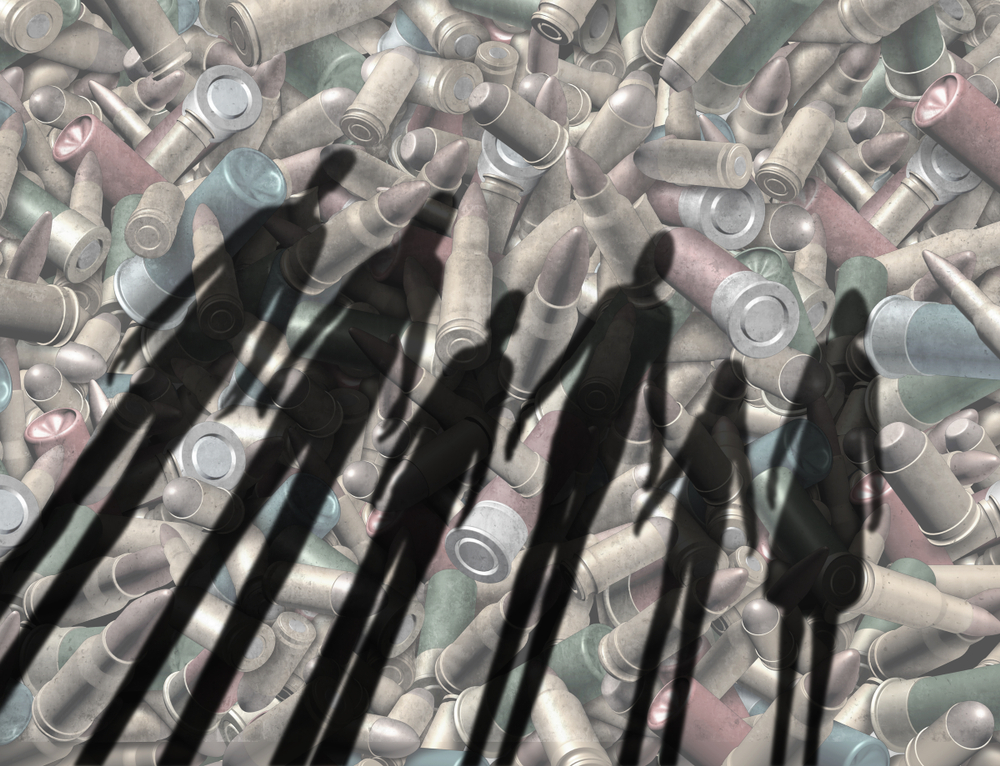NEW YORK — Of all the threads of injustice, trauma is the common theme that contributes to a culture of gun violence for black youth in the U.S. and around the globe, says a Canadian researcher and professor.
“It’s about lost hope. It’s about lost legacies,” said Annette Bailey, associate professor at the Daphne Cockwell School of Nursing and associate director of the Collaborative Nursing Program at Ryerson University in Toronto. “It’s about the daily struggles of trying to deal with the loss and be resilient while at the same time struggling with consistent social depravities.”

RYERSON UNIVERSITY
Annette Bailey
While poverty, race, inequalities and systemic injustices exist in the lives of many minority children, trauma intersects all of them and is often misinterpreted and overlooked, she said.
Bailey presented her research on the complexity of gun violence grief and its relationship with structural and social issues to an audience of about 50 youth professionals, community leaders and relatives of children lost to gun violence at the Vera Institute of Justice on Friday. Her research focuses on families who have lost loved ones to gun violence and youth who become involved with gun violence. She discussed what causes children to participate and the debilitating grief and long-term trauma associated with it.
For more information on Youth Gun Violence Prevention, go to JJIE Resource Hub | Youth Gun Violence Prevention
“When we think about who is affected most by gun violence, we see that [minority] youth are disproportionately injured and killed,” she said. “Gun violence has become the single biggest threat to the survival of black youth.”
When interviewing teens entangled with gun violence, she found they considered social poverty to be the main conduit for their involvement with brutality — something she interprets as a side effect of trauma.
They described a loss of connection in their community, a loss of connection among families, lack of support and lack of culturally safe social services, Bailey said. They felt that social poverty fed directly into violence because it made them feel unworthy.
For more information on Racial-Ethnic Fairness, go to JJIE Resource Hub | Racial-Ethnic Fairness
“These social issues are uniquely woven into black youths’ experiences,” she said. “So which one of these threads of injustice do we pull on to unravel the problem on gun violence? Which of these has the greatest impact on gun violence? For black youth the critical intersection of all of these issues is trauma.”
Bailey considers trauma to be the biggest contributor to gun violence, including traumatic grief, environmental, childhood and historical trauma — the cumulative emotional harm passed down through generations. In one survey of black youth she conducted, every participant had a family member and/or friend who was a victim of gun violence.
People in tragedy-stricken homes often experience complicated grief, PTSD and prolonged depression. At institutions like school, students can be suspended and ultimately expelled for acting out. But they aren’t receiving acknowledgement that they’re grieving or access to mental health support.
“Every time these young men lose a friend or family member to gun violence, trauma is reactivated,” Bailey said. “Trauma is directly related to gun violence.”
She ended by stressing the power of the black community and black parents.
“It’s the neighbor, it’s the teacher, it’s the adults who build your consciousness about who you are and the potential you have.”
